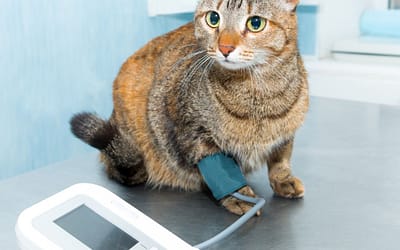Unsure if you should neuter your cat or let it be as nature intended? Know the benefits of neutering before making up your mind.
Neutering cats can help them live a longer, healthier, and happier life. It assists in the decrease of pet overpopulation by preventing the formation of specific medical and behavioral concerns.
Spaying cats or neutering cats
The process of neutering an animal is known as “de-sexing”. This method has been used to reduce or completely remove the risk of developing certain diseases later in life, such as pyometra or uterine infection. It has also been used to regulate the expansion of the animal population. In a female animal, spaying means the removal of the ovaries or uterus and ovaries. The removal of the gonads (testicles) in male animals is known as neutering or castration.
Spaying Cats
Pregnancy risk is reduced by spaying
You are contributing to the problem of pet overpopulation by allowing your cat to produce kittens. It’s not as simple as you may expect to find homes for your newest family members. Even if you decide to retain the kittens, you will still have to pay for the extra expenses of shots, parasite treatment, toys, and food for several animals. Along with expenses, a mother’s health during delivery may be at risk.
The calmer the cat, the better the household
If your cat doesn’t need to mate, it could be quieter, less likely to produce cat calls, and less likely to be obsessed with finding a companion. The neutered animal is no longer drawn to males’ invasive advances and serenades. The friendlier nature of spayed cats is another advantage. They have a higher likelihood of being kind and caring.
Your female cat’s health is maintained through spaying
The possibility of your cat having fewer health difficulties is an additional advantage of spaying it. During spaying, the uterus and ovaries are removed. When these organs are missing, there is no longer a chance of ovarian cysts, uterine infections, or cancer of the reproductive system.
Neutering Cats
The possibility of pregnancy is reduced by neutering
Your house may become quieter and occasionally cleaner after neutering your male cat. Your cat could be calmer and less likely to make cat calls or have an obsessive urge to find a partner if it doesn’t have the need to breed. Males that have had their testicles neutered often wander less and engage in fewer animal conflicts.
Your cat’s health is maintained through neutering
One further advantage of neutering your cat is that they often have fewer health issues. The testicles are taken out during neutering. Testicular cancer is no longer a worry, and the danger of prostate issues is decreased without these organs. Testicular implants are an option for folks who want to sterilize their cats but do not want to change their appearance.
When should you spay or neuter your cat?
Safe neutering or spaying of healthy cats is possible as early as six weeks of age. In comparison to cats that have surgery later, studies have indicated that cats that have surgery before the age of six months do not have an increased risk of health or behavioral issues. Spaying and neutering young animals may stop problematic tendencies before they start.
Any pet with a behavioral issue, regardless of age, should be given consideration for spaying or neutering if it hasn’t been done already. Even in older cats, surgery for some habits may lessen or even cure the issue. For further details, talk to your veterinarian or a veterinary behaviorist.
Preparing your cat for surgery and after
Your veterinarian will provide you with tips on how to care for your cat both before and after surgery. In general, avoid feeding your adult cat after midnight the night before surgery. However, a kitten requires proper nourishment, so your physician may suggest that food should not be withheld. You can follow the post-operative instructions your veterinarian gives you.
Please get in touch with your veterinarian if you see any swelling, redness, or discharge where the operation was performed or if the incision is visible. Additionally, if your cat is sluggish, has a decreased appetite, is throwing up, has diarrhea after surgery, or if you have any other concerns, call your doctor.
Is spaying and neutering cats harmful in any way?
Spaying or neutering your cat is unlikely to change his or her basic personality, though male cats may become more docile following neutering. Cats’ playfulness and general levels of activity, excitement, and vocalization do not typically change following spay or neuter surgery. Physically, male cats neutered prior to puberty do not develop the large heads and thick skin of intact males.
Neutering a cat provides several benefits. Even though bringing your beloved cat in for surgery might be terrifying, the risks of unwanted kittens, escaping, and encountering other animals pose far greater dangers. If you haven’t already, talk to your vet about neutering your male cat or spaying your female cat.





0 Comments